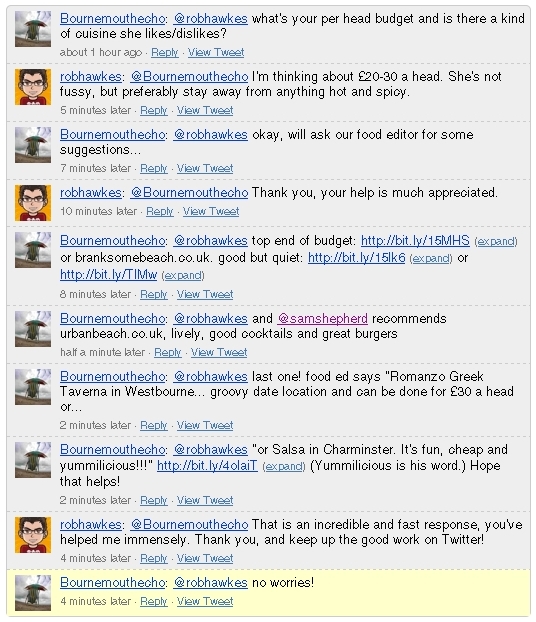There’s been a mixed reaction to the news that all Facebook Pages will be getting the new Timeline by the end of the month. But I think there are a lot of pluses if you run a local newspaper Facebook Page. Here’s why.
Cover photos:
- The cover photo is big, which makes it a great way to showcase images. I’m going to use it to highlight local beauty spots, the best reader photography or our own archive pictures and change with the seasons
- You can tag where they were taken for more views, or tag people in them
- Highlight upcoming big events with an archive image from previous events – for us this means a great picture from the Air Festival or Camp Bestival. We’re watermarking to prevent theft and adding a link to the photo sales site in the description. I don’t think this breaks any rules but if it does someone will no doubt let me know!
- Use it to showcase a picture gallery post-event with a link to our galleries and coverage – race for life, a big community event – and tag some faces. I’m thinking of our cover photo like an extra bonus front page that will show as a new post when we change it.
Milestones:
- Highlight big local issues by adding them to our timeline – for us that’s the development of the surf reef for instance and the building/closure of the Imax. Or the night the ruling party lost control of the council. We’re going to link to our archived content
- How we covered major historical events – upload scanned versions of our front pages the day war broke out or the Titanic sank. Add new ones on the day of the anniversary, link to galleries of archive pictures – Coronation street parties on the weekend of the Jubilee for example
Other pluses:
- The message button, for people who don’t want to talk to you publicly. This is a real boon for newspapers, where readers might not want to tell their story in public to start with. I have a “work” FB profile specifically so people could contact us privately without anyone having to use their personal accounts. This change takes that problem away.
- Tabs are now extra wide and can have custom images – annoying if you spent ages coding a really flash one, but far better for displaying our content
- Highlights and pinned content – brilliant for keeping something at the top of the page when you’ve got a breaking story (so we could use a picture and link to our constantly updating content on our site) or star a picture to make it widescreen.
And don’t forget, even if none of these things sway you, how many of your fans actually visit your page instead of commenting/sharing/liking on your posts as they appear in their news feed? How many of your Facebook friends profile pages do you visit regularly?
If you run a page it’s also worth reading this post from Buddy Media about some of the changes to advertising – I imagine its not something that most local newspapers would be shelling out for but makes interesting reading all the same.
Anyone think of any more upsides to the timeline that I’m missing?
